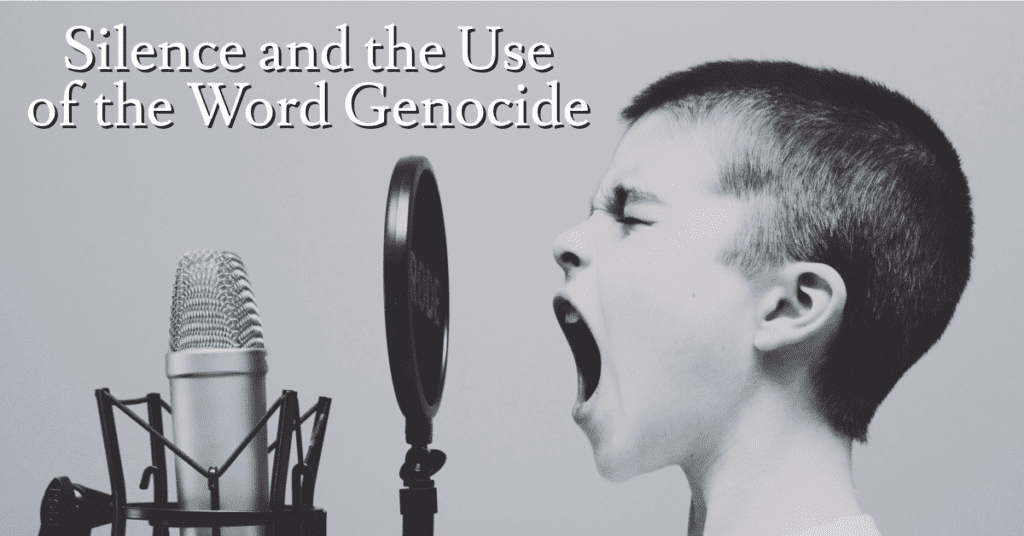Table of Contents
Getting involved in a Facebook argument is futile.
No one has ever emerged victorious in these wars of words that often drag on and yank people into the mud. So I don’t engage. I stay far away.
That is, until I feel like I can’t keep silent.
And that’s what happened to me the other day, as I saw words like “genocide” flung around haplessly. I broke my golden rule: Stay out of it.
Why did I break my rule, you ask?
Bombing Human Shields

A friend made a post that sounded something like this:
Hamas sucks for using human shields. But that’s no excuse for Israel to bomb the hell out of those human shields.
And before I knew it, I was immersed in an internet war of words. And like the IDF who are entrenched in enemy territory, I was all alone there, fighting the good fight with no one there to help out. No one on my side. Just a sea of people who look at us from the outset as the ones doing wrong who need to justify their every action.
From the moment I got involved, I set three rules for myself. I didn’t want to be like the many other people out there who were engaging in rhetoric with no goal in mind. And were accomplishing nothing. I needed to be different.
Rules of Engagement

These were my three rules:
- Do not rely on pithy one-liners. Right now the world is immersed in a battle of one-line memes, each side preaching to a cheering choir. And those single sentence or no-fact statements are not making a difference. Yes, the world is filled with people who can’t handle too many words. Nevertheless, I won’t be a party to it. No argument by just willy-nilly tossing around terms like “genocide”ethic cleansing” or by comparing Hamas to ISIS. The people I speak to deserve more respect than that.
- Conversely, don’t be overly wordy. I can’t stand when I’m scrolling through a discussion, and all of a sudden I see a response that looks like a novella. Yes, it’s nice that they’re relying on facts and fully explaining their thoughts. But for whom? No one’s ever going to read it. In the ADHD world of the internet you get mere minutes to make your point. If someone needs to scroll through an endless sea of words, you’ve written your response for absolutely no one. You wasted way too much time, still no one will read it. It’s a full-on lose-lose.
- Finally, don’t get nasty.
Attacks of a Different Kind

It’s no secret. People on the internet are mean. They feel comfort sitting behind their computers, many miles separating between them and the person they’re insulting. And they say awful things. They accuse the person they’re addressing of being stupid or illogical or heartless.
Part of the reason they do this is simply because they can. But part of it is an aspect of rhetoric. It’s effective… but manipulative, mean-spirited, and irrelevant, since it doesn’t actually bolster an argument.
We hide behind personal attacks when we don’t feel confident about what we’re saying. If we can’t win the hearts and minds of those listening with our arguments, we try to win by other means. It’s the verbal equivalent of someone losing a fight and turning to biting or kicking below the belt. Yes, it might result in a win. But it’s not fair, and doesn’t speak well of the one who resorts to such tactics.
So I promised myself I wouldn’t be that guy and stuck to my guns.
Truth is Unimportant

But I was not in friendly waters. And every time someone said something demonstrably wrong, I watched as the number next to that little thumbs up icon just went up and up. The modern day equivalent of an audience cheering for someone who said something excellent during a debate.
But I’m sorry to say, their points were not good.
They ranged from ignorant to downright unsympathetic.
And it’s so very hard for me.
In my mind, knowledge and truth are eminently valued. Where making the better, more reasonable, more thoughtful point should carry water. But I live in a world that doesn’t respect any of that. People form opinions based on quick judgments rather than deliberation and an attempt to truly understand the situation.
They follow trends. They listen to the nonsense spewed by their favorite celebrities. And they pick sides based on irrelevant factors, like who has the more modern weapons, rather than looking at the whole of the situation.
Yet I still found myself involved. And frustrated. And angry.
Haphazard Genocide

The core of my anger was at one particular person who haphazardly invoked the word “genocide“. Why do people choose to use that particular word to describe the actions of the IDF? It’s a deliberate and nasty technique, meant to rile up Jewish people, the victims of one of the world’s most prolific genocides. It’s essentially telling Israel that we’re no better than Nazis, a laughably heinous claim they would never make with direct language.
I asked the fella if he felt the actions of Hamas on October 7th were also acts of genocide. His response: No… but I don’t want to explain my reasoning to a stranger on the internet.
Ah. So you’re willing to publicly accuse Israel of genocide, but not willing to explain why Hamas is not engaged in genocide? When Hamas sets out to massacre Jews indiscriminately, and states explicitly their hatred for all Jews and their desire to continuously murder as many as humanly possible, that’s not an act of genocide? But when Israel defends itself after being attacked and does everything in its power to avoid civilian casualties against an enemy that uses them as human shields, we’re the genocidal maniacs?
And you don’t want to explain your reasoning to a stranger?
What Could It Be?

I’m not one to run around crying antisemitism whenever a Jew is at the receiving end of mistreatment or on the wrong end of bias. But I struggle to understand this logic in any other way. How can you look at one person’s heinous actions and quickly forgive, and another person’s relatively reasonable actions and condemn? Something’s happening here. Something deeper than logic. Something more powerful than reason.
It’s called hate.
It’s deep within your heart, whether or not you realize it’s there or understand it.
For certain we can’t always be in the wrong. And when you perceive that we are, what else can that be called?




And here’s an enlightened discussion exactly on that topic, but not with limited words. Hope it can reach those who truly are blinded by today’s sad ignorant social media https://www.youtube.com/live/psTIE_Z8jgs?si=EZn41RtZBrGL8BLd